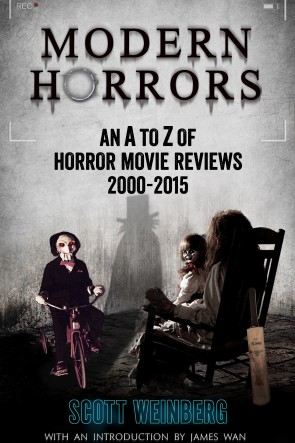Review: INTO THE FOREST (2015){0}
It’s the end of the world as we know it (and I feel fine)
Anyone fond of bemoaning the dearth of female voices in the film industry could do a lot worse than spend 100 minutes with the beguiling post-apocalyptic drama Into the Forest: not only is it adapted (as in written and directed) by a woman (Mansfield Park’s Patricia Rozema) from a novel by a woman (Jean Hegland’s ahead-of-the-curve small press publication), it also boasts two terrific performances by actresses we already know can deliver the goods: Ellen Page and Evan Rachel Wood.
In the not-too-distant future, sisters Nell (Page) and Eva (Wood) live with their widower father (Callum Keith Rennie) in an isolated house in the woods; Nell is studying for exams, Eva has aspirations as a ballet dancer. One day, out of the blue, there’s a power outage – apparently nationwide – that intensifies their sense of isolation, and forces them to ration food, water and fuel. A trip into the nearby town shows how quickly civilisation has broken down in the absence of electricity (David Koepp’s underrated thriller The Trigger Effect explored similar territory, and I urge you to track it down – it’s dynamite), and the close-knit family wisely decides to wait out the power outage in the relative comfort of their forest home. What happens next is the stuff of nightmares, including a freak accident (with just a hint of plot contrivance), a terrifying ordeal (a challenging scene that Rozema handles sensitively), and – in between – a variety of everyday problems that arise when the world ends not with a bang, but a whimper.
Given the glut of post-apocalyptic movies and television shows, ranging in style and mood from the unrelenting bleakness of The Walking Dead to the cheerfully satirical The Last Man on Earth, it’s refreshing to find a story that finds a new way to talk about the end of the world, especially one based on a twenty-year-old novel. Rozema’s screenplay does a decent job of adapting Hegland’s book (she understandably omits one controversial aspect of the novel, and doesn’t entirely sell the ending), but it’s her directorial choices that are the key to Into the Forest’s unique sensibility; it’s one of those rare films in which the scenes between the ‘plot points’ are as engaging as the incidents and accidents that propel the story forward. Adding to the film’s artistic allure is the music by Max Richter (whose mournful piano helped define the existential melancholia of HBO’s The Leftovers) and Daniel Grant’s alluring cinematography, both of whom give Into the Forest something of the look and feel of a Sigur Ros music video. (I consider this high praise.)
There’s no slate-wiping virus, no shambling zombies or marauding survivalists, no Armageddon or apocalypse in Into the Forest – just a worm’s-eye-view of civilisation’s slow decline in the wake of an unexplained power outage, anchored by two excellent central performances.
★★★★
David Hughes








